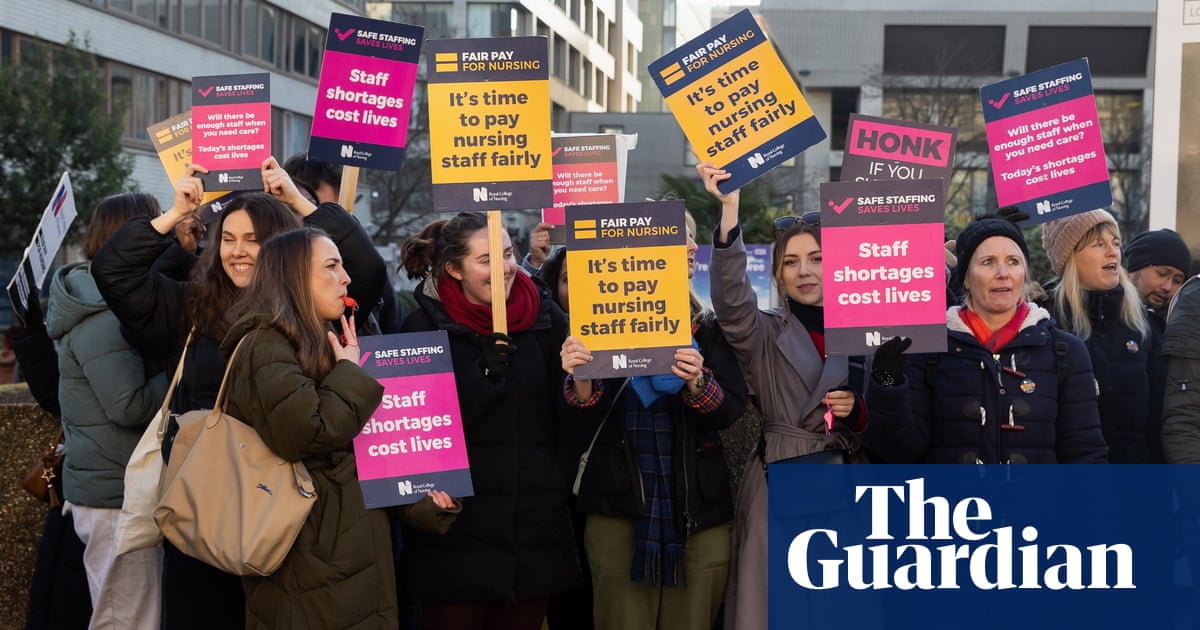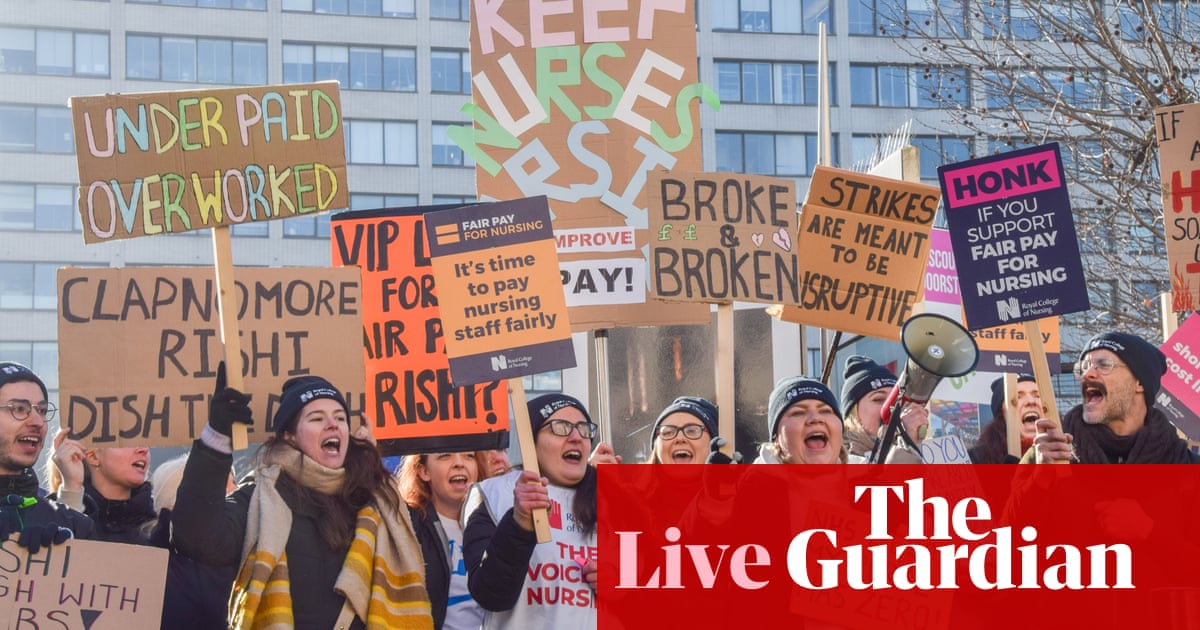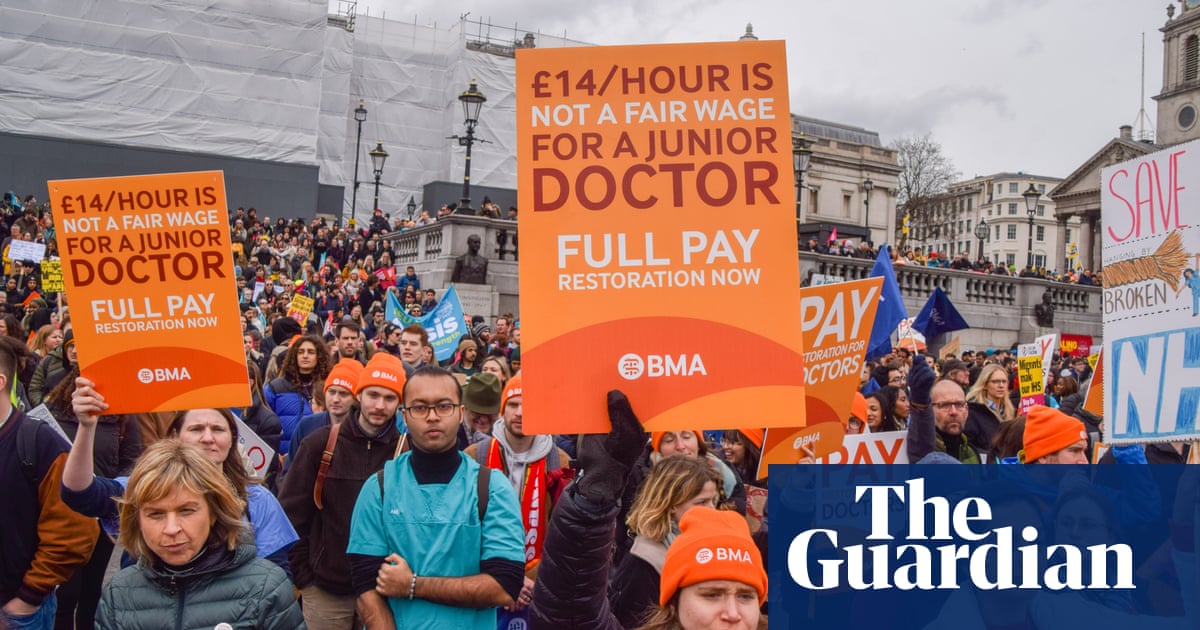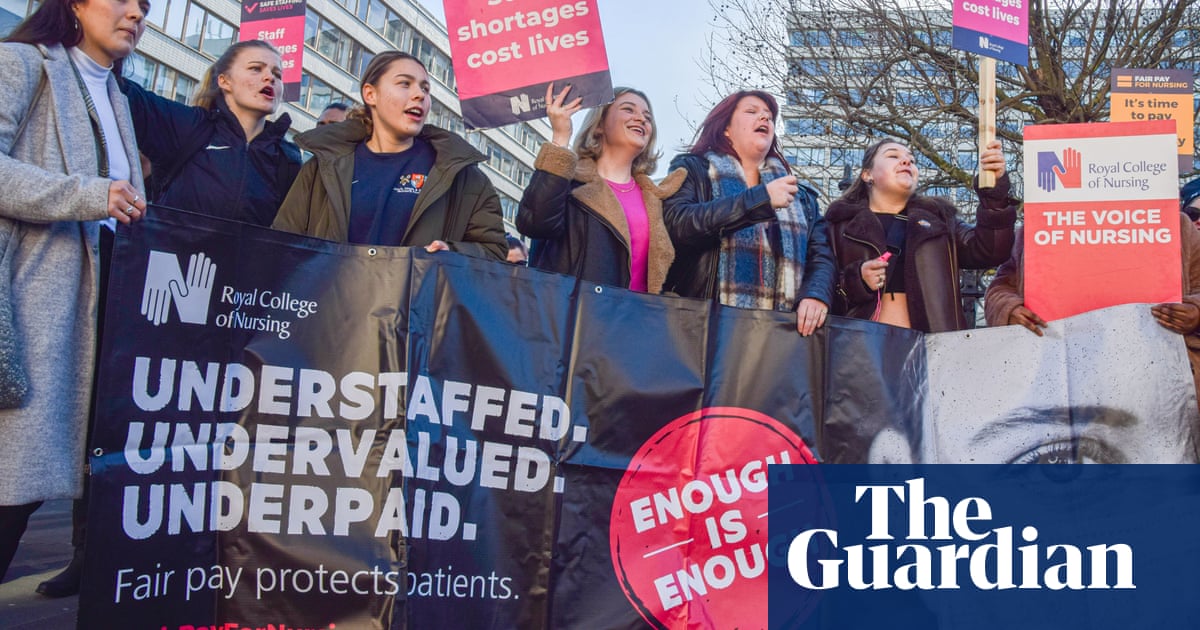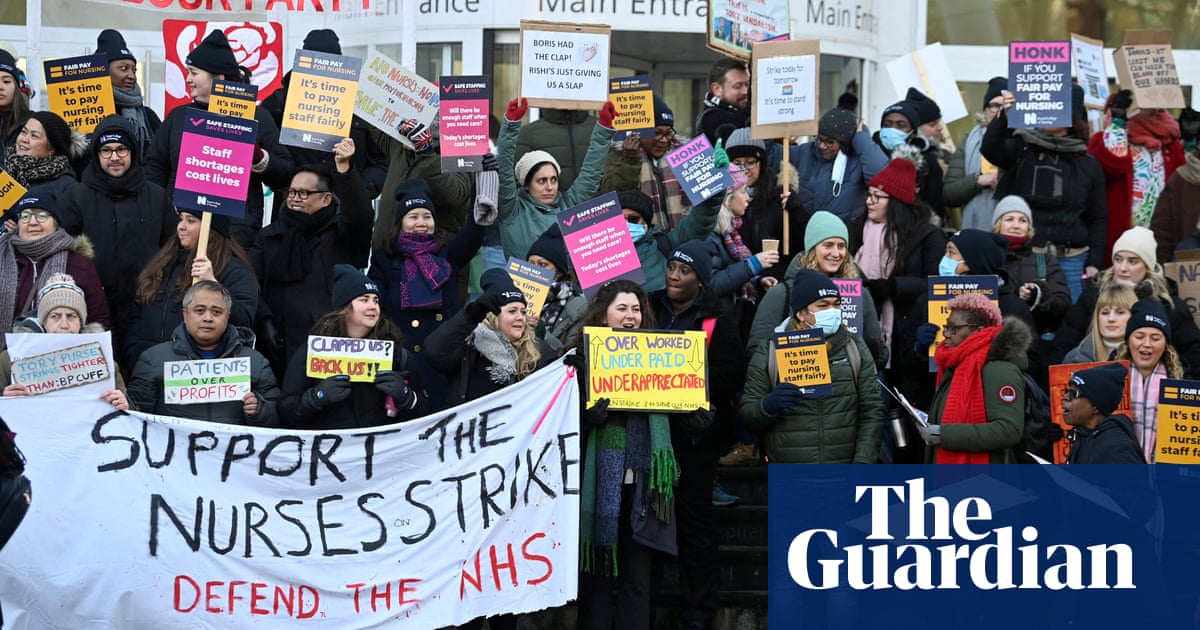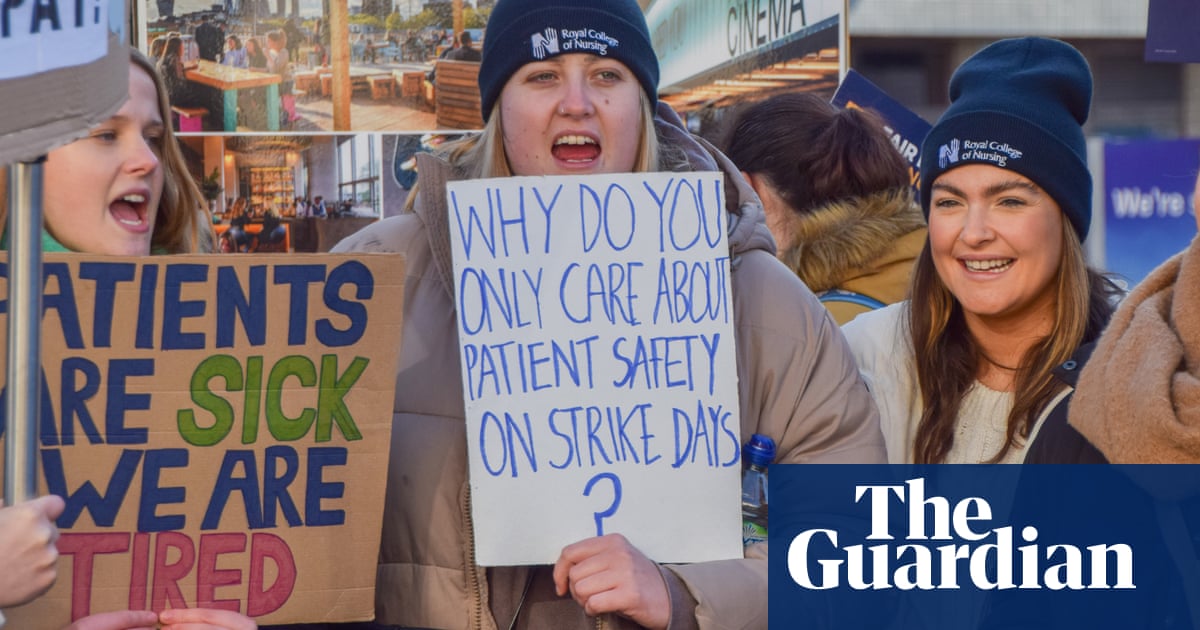
Ministers and nurses’ leaders will hold “intensive talks” on Wednesday in an unexpected move that has raised hopes that they will thrash out a deal to end the long-running pay dispute.
Both sides made clear that the first detailed pay negotiations since nurses began striking in December offer a real prospect that the Royal College of Nursing’s (RCN) growing campaign of industrial action, and the disruption it is bringing for NHS services, could soon be at an end.
One Whitehall source said: “We welcome that these talks are happening and hope that we get to a fair and reasonable deal. It has to be something that works for both sides.”
The RCN called off a 48-hour walkout it planned to hold in England next Wednesday and Thursday – including A&E and intensive care nurses for the first time – after health secretary Steve Barclay agreed on Tuesday to hold face-to-face talks with RCN’s general secretary, Pat Cullen, on nurses’ pay for the first time since 9 January.
However, it is unclear if the talks will involve nurses’ pay in 2022/23, 2023/24 or both. Until now, the RCN has made clear that it will only call off its strikes if Barclay increases the £1,400-a-head award he imposed on all NHS staff except doctors and dentists, which equates to about a 4% rise.
But Rishi Sunak and Barclay have made clear in recent weeks that the government would not budge on its determination not to reopen that settlement, despite health unions’ insistence that the £1,400 was too low, given inflation has regularly been at over 10% over the last year. Both the Labour administration in Wales and SNP government in Scotland have offered NHS staff much more.
For the talks to produce a breakthrough either the RCN or Barclay will have to perform a major U-turn on their previous positions.
In another potential obstacle to a deal, other health unions immediately made clear that the government could not reach a settlement with only the RCN. They demanded that Barclay meet all the others too, amid fears that Barclay is trying to divide the RCN from them.
Barclay is believed to regard nurses as a special case, despite the government’s drive to keep public sector pay awards low to try to get inflation back under control. However, the longstanding UK-wide Agenda for Change agreement, under which all frontline staff except doctors and nurses receive the same pay rises, should mean that any offer to the RCN is made to all unions.
“Pay talks with all health unions representing striking NHS workers must happen now”, said Sara Gorton, head of health at Unison. “Meeting with one union alone will do nothing to solve the dispute. Ministers need to start behaving like grownups and up their game substantially.”
RCN members have already staged six walkouts since striking in England, Wales and Northern Ireland on 15 December in the union’s first-ever simultaneous action in its 100-year history. It planned to significantly escalate its action next week after growing increasingly frustrated that, despite tentative signs of progress in early January, an impasse with ministers had developed.
NHS bosses in England have already had to cancel more than 140,000 operations and outpatient appointments over the last two months because of strikes by nurses, ambulance staff and physiotherapists. They hope Barclay and Cullen’s meeting will lead to a settlement to end the most high-profile of the many pay battles across the public sector ministers are involved in.
A leading NHS boss said the talks were a much-needed “glimmer of hope” while one RCN official described the move as “a major breakthrough”.
In an unprecedented joint statement about “ongoing pay talks” issued late on Tuesday afternoon, the RCN and the Department of Health and Social Care said that: “The government and Royal College of Nursing have agreed to enter a process of intensive talks.
“Both sides are committed to finding a fair and reasonable settlement that recognises the vital role that nurses and nursing play in the National Health Service and the wider economic pressures facing the United Kingdom and the prime minister’s priority to halve inflation.
“The talks will focus on pay, terms and conditions, and productivity-enhancing reforms. The health secretary will meet with the Royal College of Nursing on Wednesday to begin talks. The Royal College of Nursing will pause strike action during these talks.”
The talks will be held at the DHSC’s offices in Westminster and, in a sign that both sides are anticipating progress, are expected to continue into Thursday and Friday.
Whitehall sources insisted that the talks would focus on the pay rise nurses would receive in 2023/24 and that ministers are still determined not to revisit this year’s £1,400 award.
Nurses could get as much as a 5% increase next year, depending on the outcome of the NHS pay review body process, even though the DHSC has only budgeted for a 3.5% uplift, officials said.
Government insiders suggested that the two sides had “met halfway” on pay and productivity demands, which had enabled face-to-face talks to resume. There had been an “understanding” on both sides of each other’s positions, they added.
Meanwhile, in a similar move to end the teachers’ pay dispute, the Department for Education (DfE) said it would open “formal talks” on pay and conditions with the major teaching unions in England but only if regional strikes scheduled for 28 February and 1-2 March are cancelled.
A DfE spokesperson said that education secretary, Gillian Keegan, had written to the unions inviting them to talks, adding: “A condition of these talks will be that the National Education Union (NEU) calls off next week’s strike action.”
The DfE also published its evidence to the School Teachers’ Review Body, the independent body that makes recommendations on teachers pay, for the 2023-24 award. The DfE submission calls for a 3% rise for experienced teachers as well as starting salaries rising to £30,000, for an overall increase of 3.5%.
Kevin Courtney, joint general secretary of the NEU, said the union’s national executive meeting on Saturday would consider Keegan’s demand. “We are willing to talk at any time but there is nothing substantial in [Keegan’s] letter that suggests to us we should call off strikes for next week,” Courtney said.






